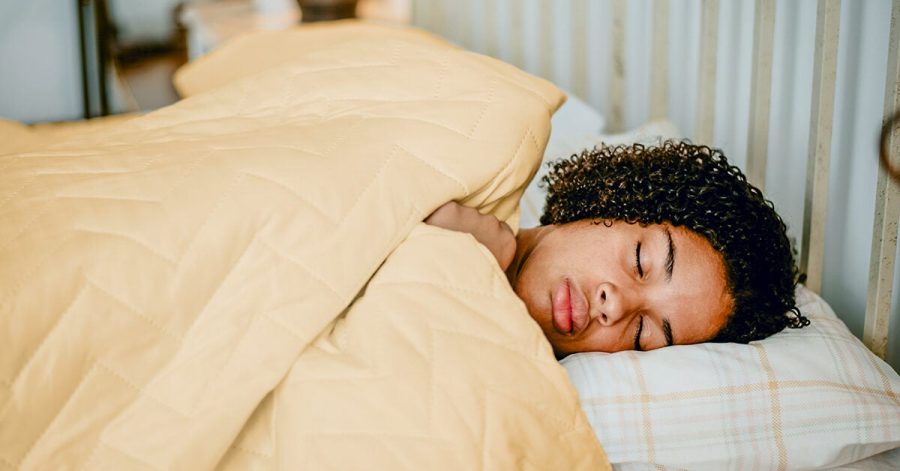Ten Things That Will Improve Your Sleep
Bags under the eyes, tossing and turning every night, sleeping in until 1 p.m. during the weekends, and feeling tired throughout the entire day. Trouble sleeping is no fun, especially for students that need at least 7 hours of sleep a night to have a ‘strong sleep hygiene’. Here are ten tips and tricks to ensure a better good night’s sleep.
1. Create a consistent schedule
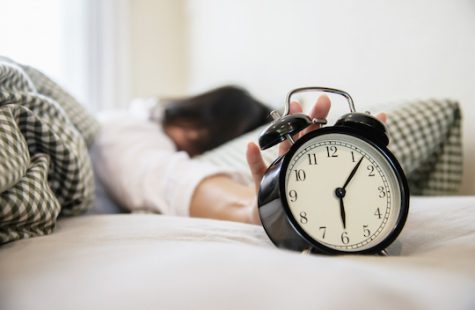
It all starts with creating a consistent sleeping schedule. This is one of the most important strategies for sleeping better. To get in synch with your body’s ‘natural sleep-wake cycle’, you should try to wake up and go to bed at the same time every day. Go to bed at a time when you normally feel tired to avoid tossing and turning. Do not sleep in, even on the weekends. When there is a significant difference between your weekday sleep schedule and your weekend sleep schedule, it is harder to get into a rhythm.
2. Exercise

Daily exercise has countless benefits for your health, including your sleep. It is highly recommended to exercise in the morning or afternoon and not too close to your bedtime at night. You will be less sleepy during the day. Moving your body will let you get rid of the energy that might keep you up later. The more intense your workouts are, the more powerful the sleep benefits. However, you do not necessarily need to do heavy workouts all the time, light exercises like walking for 10 minutes a day help too.
3. Be smart about when you eat and drink

There is no better way to start the day than with a healthy breakfast. Eating a balanced meal in the morning can help teach your body that it is time to wake up and start the day. Skipping breakfast lowers your energy and can increase stress, something that might cause problems before bedtime. At night, it is better to avoid big meals since your body might still be digesting a big dinner when you are trying to fall asleep. Try to have dinner earlier in the evening and have a meal that does not really contain heavy and rich foods if you eat within two hours before going to bed.
4. Get away from bright screens 1-2 hours before your bedtime
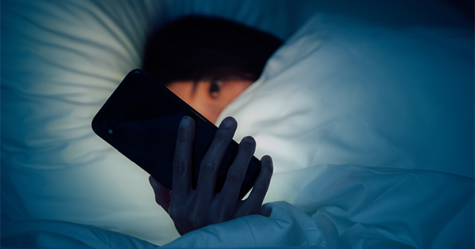
The bright blue light coming from your phone, your computer, or your television suppresses melatonin, a hormone that helps control the body’s sleep cycle. By using devices with smaller screens and turning the brightness down you can minimize the impact. Also, using technology can keep your brain active and wired, which makes it hard to relax before bed and therefore difficult to fall asleep.
5. Limit caffeine and alcohol

Caffeinated drinks are used to overcome daily sleepiness but that approach will not work forever and it can even cause long-term sleep deprivation. Therefore, be aware of your daily caffeine intake and avoid it later in the day. While alcohol can induce sleepiness for some, you should know that alcohol affects the brain in certain ways that can lower sleep quality. Therefore, it is strongly advised to not consume alcohol before bed.
6. Be careful with taking daytime naps
Taking naps can be a good way to make up for lost sleep. However, taking naps too long or too late in the day, can completely throw off your sleep schedule and make it even harder to fall asleep. The best time for a nap is in the early afternoon after lunch and the recommended nap length is around 20 minutes.
7. Improve your sleep environment

Most people prefer a somewhat cooler bedroom, around 65 degrees. Cool, dark, and quiet is the way to go. Try to keep the noise down and make your room as dark as possible. Choose quality bedding and be mindful of the importance of a so-called high-performance mattress and pillow. Pleasant smells, such as lavender, can also contribute to creating a peaceful sleep environment. You will get the best sleep in a comfortable bedroom. This might seem very obvious but this is often overlooked which can lead to difficulties when it comes to falling asleep and sleeping through the night without waking up.
8. Use the bed for sleep and sex only
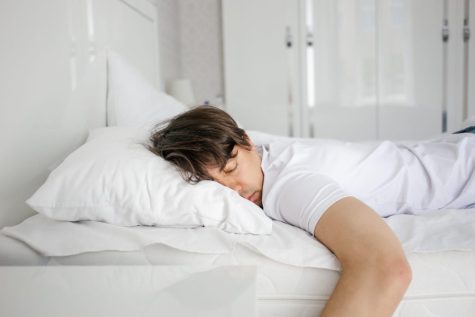
Even though you get tempted to hang out on your bed during the day because it might look really comfortable, it is important to create a strong mental association between your bed and sleep. Doing activities like working, doing homework, or watching shows in bed can mess with this connection and this will cause problems at the time you go to bed. So, try to keep these activities limited and reserve your bed for sleep and sex only.
9. Find ways to clear your head before bedtime
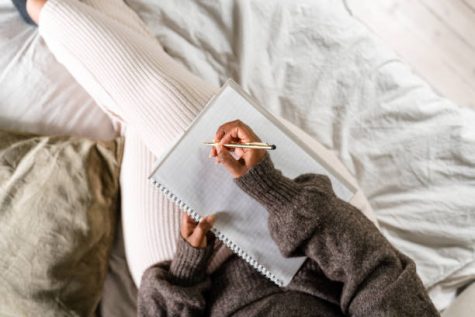
Many people take their stress to bed and this makes it difficult for them to fall asleep. It is important to wind down at least 30 minutes before you go to bed so you can doze off feeling relaxed. There are many ways to wind down before bed. Think of writing in a journal, making a to-do list for the next day, reading a book, listening to (soothing) music, or doing relaxation exercises like breathing exercises.
10. Be disciplined and hold yourself accountable

In the end, it all comes down to holding yourself accountable for sticking to your sleep hygiene. Stick to your sleep schedule and tell yourself that it is time to stop watching that show on television and get ready for bed. If the alarm goes off a little too early to your liking, force yourself to leave bed and start the day. It will be hard to stick to a routine in the beginning but you will see results soon enough. Just be patient.
Many of us probably do not realize how important it is to be able to sleep well and consistently and how sleepless nights can affect your mood, energy levels, and performance at work or school for example. That is why it is essential to reflect on your sleep hygiene now and then to see if there is anything you need to change. If you have trouble sleeping, hopefully, the tips and tricks above will show you that some easy and small adjustments can do a whole lot to improve your sleep.

Stéphanie Lankhorst is a Senior at Mercy College, majoring in Radio and Television Production. At the age of 17, Stéphanie decided to move from the Netherlands,...



